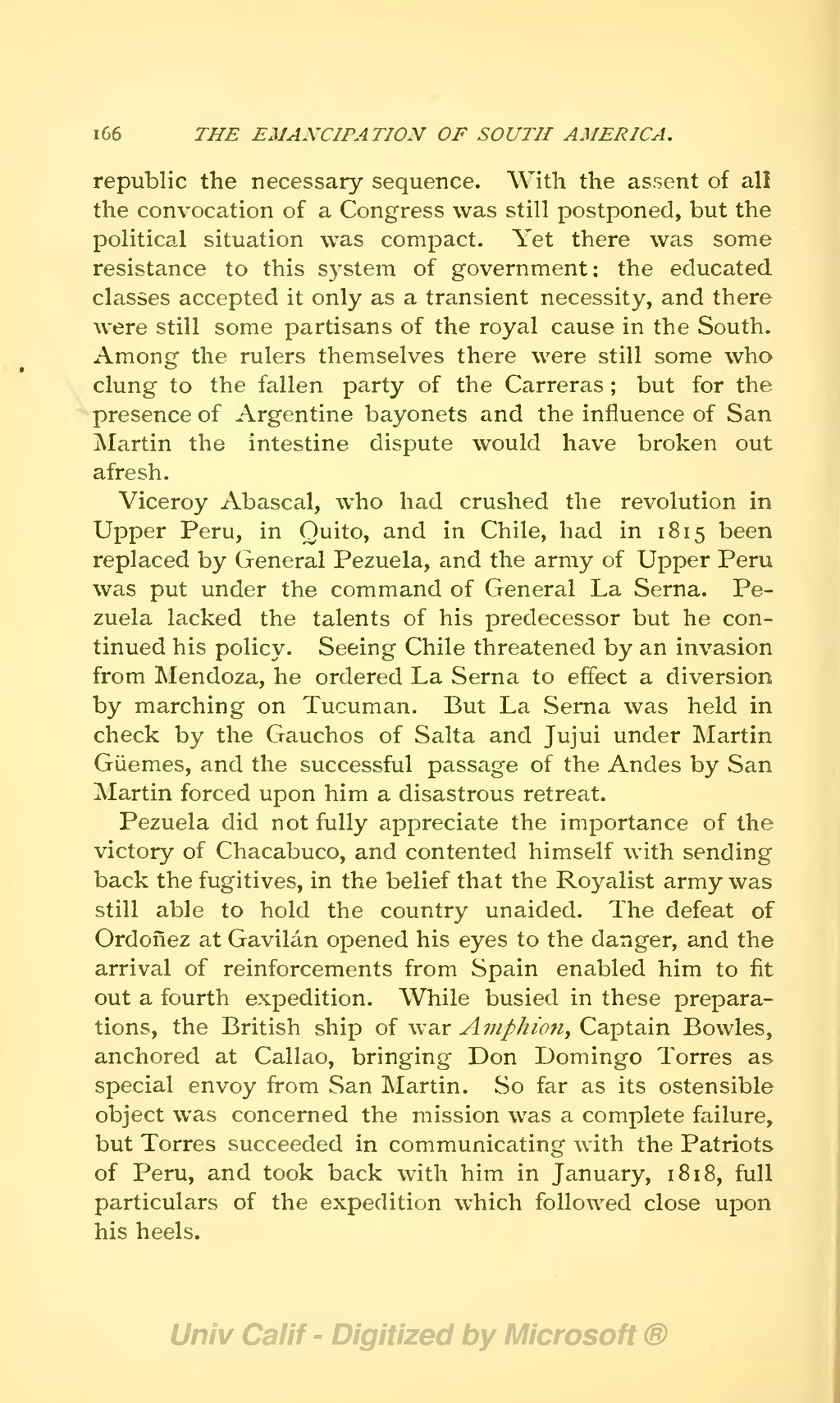republic the necessary sequence. With the assent of all the convocation of a Congress was still postponed, but the political situation was compact. Yet there was some resistance to this system of government: the educated classes accepted it only as a transient necessity, and there were still some partisans of the royal cause in the South. Among the rulers themselves there were still some who clung to the fallen party of the Carreras; but for the presence of Argentine bayonets and the influence of San Martin the intestine dispute would have broken out afresh.
Viceroy Abascal, who had crushed the revolution in Upper Peru, in Quito, and in Chile, had in 1815 been replaced by General Pezuela, and the army of Upper Peru was put under the command of General La Serna. Pezuela lacked the talents of his predecessor but he continued his policy. Seeing Chile threatened by an invasion from Mendoza, he ordered La Serna to effect a diversion by marching on Tucuman. But La Serna was held in check by the Gauchos of Salta and Jujui under Martin Güemes, and the successful passage of the Andes by San Martin forced upon him a disastrous retreat.
Pezuela did not fully appreciate the importance of the victory of Chacabuco, and contented himself with sending back the fugitives, in the belief that the Royalist army was still able to hold the country unaided. The defeat of Ordoñez at Gavilán opened his eyes to the danger, and the arrival of reinforcements from Spain enabled him to fit out a fourth expedition. While busied in these preparations, the British ship of war Amphion, Captain Bowles, anchored at Callao, bringing Don Domingo Torres as special envoy from San Martin. So far as its ostensible object was concerned the mission was a complete failure, but Torres succeeded in communicating with the Patriots of Peru, and took back with him in January, 1818, full particulars of the expedition which followed close upon his heels.
